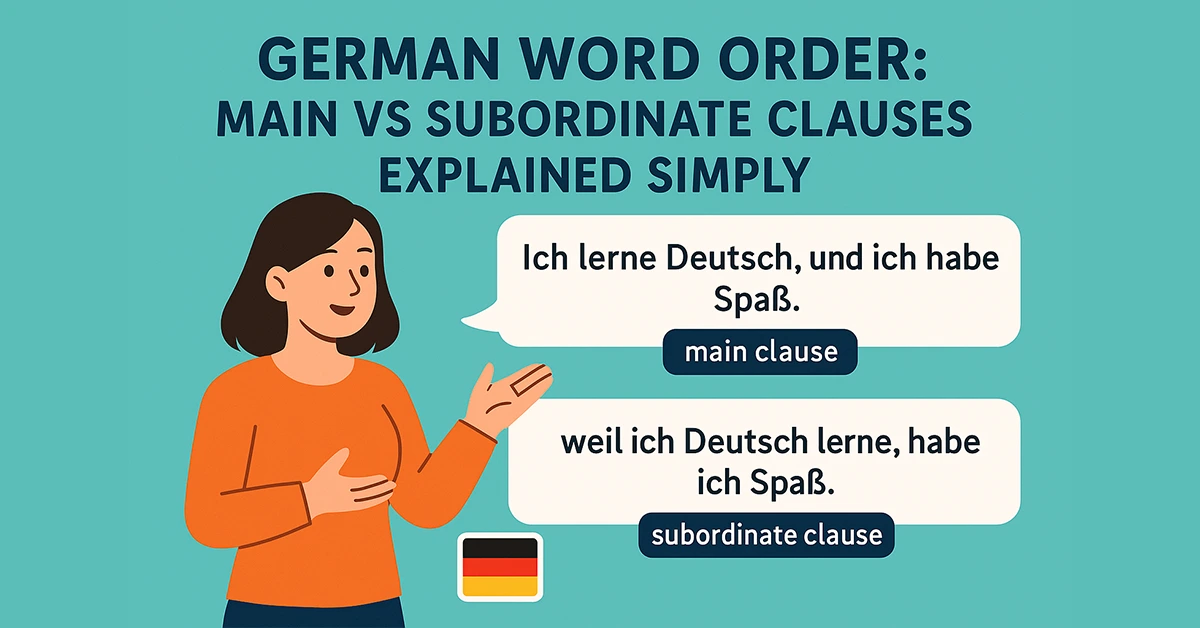german modal verbs
-

German Word Order: Main vs Subordinate Clauses Explained Simply
Learn how German word order works in main and subordinate clauses. This guide explains clear rules, real examples, and key tips to master sentence structure.

Learn how German word order works in main and subordinate clauses. This guide explains clear rules, real examples, and key tips to master sentence structure.